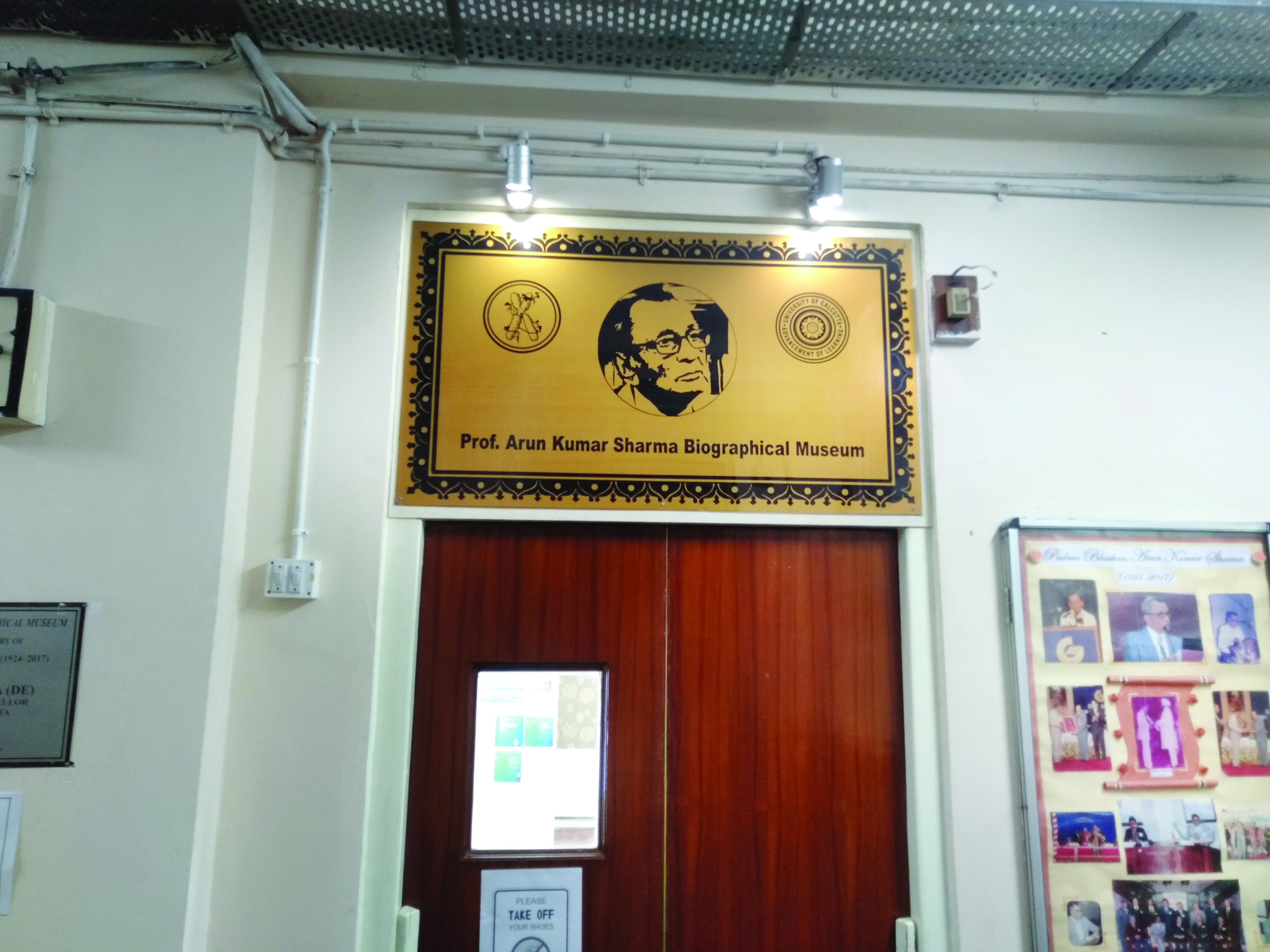CU turns renowned Indian cytogeneticist’s room into biographical museum

Kolkata: The Botany department of Calcutta University (CU) has converted the room of Padma Bhushan and Shanti Swarup Bhatnagar awardee, Arun Kumar Sharma at Ballygunge Science College into a biographical museum to pay homage to his centenary year.
“Teachers like Sir (Arun Kumar Sharma) are rare not only in Bengal but in the entire country. Apart from organising seminars to commemorate the occasion of his centenary, we decided that the most befitting tribute to him will be restoration of the room to a museum so students of biological science in India can know about his immense contribution to this field,” said Rita Kundu, head of CU’s Botany department.
Sharma, one of the leading scientists in post-Independence India, is considered by many as ‘the Father of Indian Cytology’ for his immense contribution to chromosome research. Maumita Bandyopadhyay, faculty department of Botany, along with her colleagues and research scholars of the department, has taken up the responsibility of curating the museum.
Artefacts in the museum comprise Sharma’s chairs, class routine, twin microscopes, typewriter, visitor book, several rare photos and various awards and recognition he won. “We are presently working on restoration of the 100 thesis and numerous research papers completed during his tenure in CU, “ Bandyopadhyay said. An alumni of Mitra Institution, Bhowanipore and Asutosh College, Sharma did his BSc (1943) and MSc (1945) in botany from CU. In 1955, CU awarded him DSc for his outstanding research. After his post graduation in 1945, Sharma joined the Botanical Survey of India and developed the Herbarium and Botanical Garden at Shibpur.
He joined CU’s Botany department in 1948 as an assistant lecturer and during his four-decade long career, he became the HoD in 1969. He was also Sir Rashbehary Ghosh’s professor in Botany from 1969 to 1988 and INSA Golden Jubilee Research Professor from 1985 to 1990. He was awarded Shanti Swarup Bhatnagar prize in 1967 and Padma Bhusan in 1983. In the 100th Science Congress (2013), his work on plant chromosome research spanning for 50 years was released as a database. He won international recognition for his work in cytogenetics, cytochemistry and cell biology.



